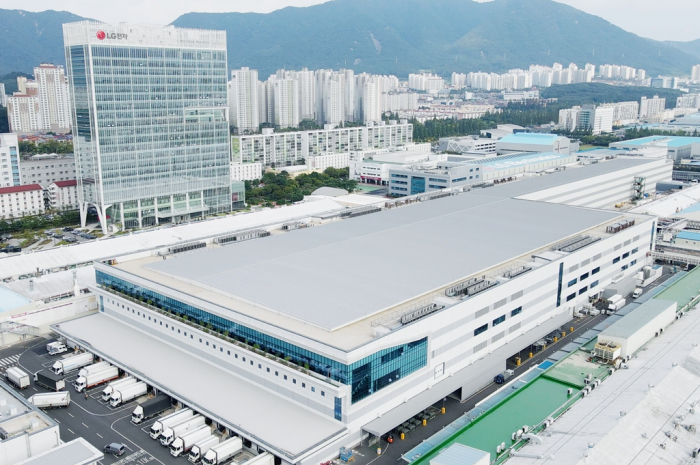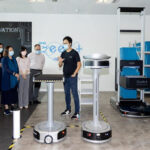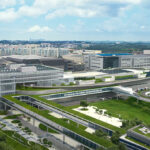ASIA ELECTRONICS INDUSTRYYOUR WINDOW TO SMART MANUFACTURING
LG to Rebuild Entire Manufacturing Facilities Around Smart Factory System
Drop by LG Smart Park, an integrated smart factory building in southern industrial city of Changwon, Korea, and you will see an army of robots busily assemble parts and components to produce water purifiers and refrigerators.
Built around its subsidiary mobile service provider LG U+’s 5G technology, a fleet of automated guided vehicles, or AGVs are also hurriedly buzzing around the factory assembly floors to carry pallets of parts and components to pre-designated assembly lines.
The scene is a daily routine operation happening at the three automated assembly lines of the Smart Park, LG Electronics’ first smart factory building that will accommodate three more assembly lines for kitchenware by 2024.
The Korean consumer electronics giant said that the Smart Park is a role model of how the company will rebuild its entire manufacturing facilities around a smart manufacturing system of AI, deep machine learning algorithms, robots, IoT, and 5G technologies.

LG has earmarked 800 billion won in the Changwon-based Smart Park build-up project that aims to accommodate 6 automated assembly lines under the roof of one single integrated smart factory building.
Of the total, 480 billion won has been spent to rebuild three assembly lines in what’s called as the first phase of the Smart Park project.
Once the 2-phase smart factory build-up project done, it will result in big gains in productivity and power efficiency. LG expects the Smart Park will be able to produce 3 million units a year, up from 2million units now. Energy efficiency will also rise by 30%.
True enough, LG Group, or big conglomerate is now spearheading Korea’s rapid adoption of smart factory system as part of its group-wide digital transformation project. The conglomerate announced in mid-June that it will spend about 120 billion won over the next three years to build a massive high-performance computing infrastructure for AI, or artificial intelligence technology.
Accordingly, LG U+, a member company of LG Group, is actively engaging in a smart factory market, unleashing a variety of smart factory solutions. Especially, the Korean mobile service carrier has been developed 5G and 4G mobile technology-based smart industrial solutions to automate workload and improve safety.
Its solutions have been adopted and used across about 150 manufacturing facilities in Korea.




